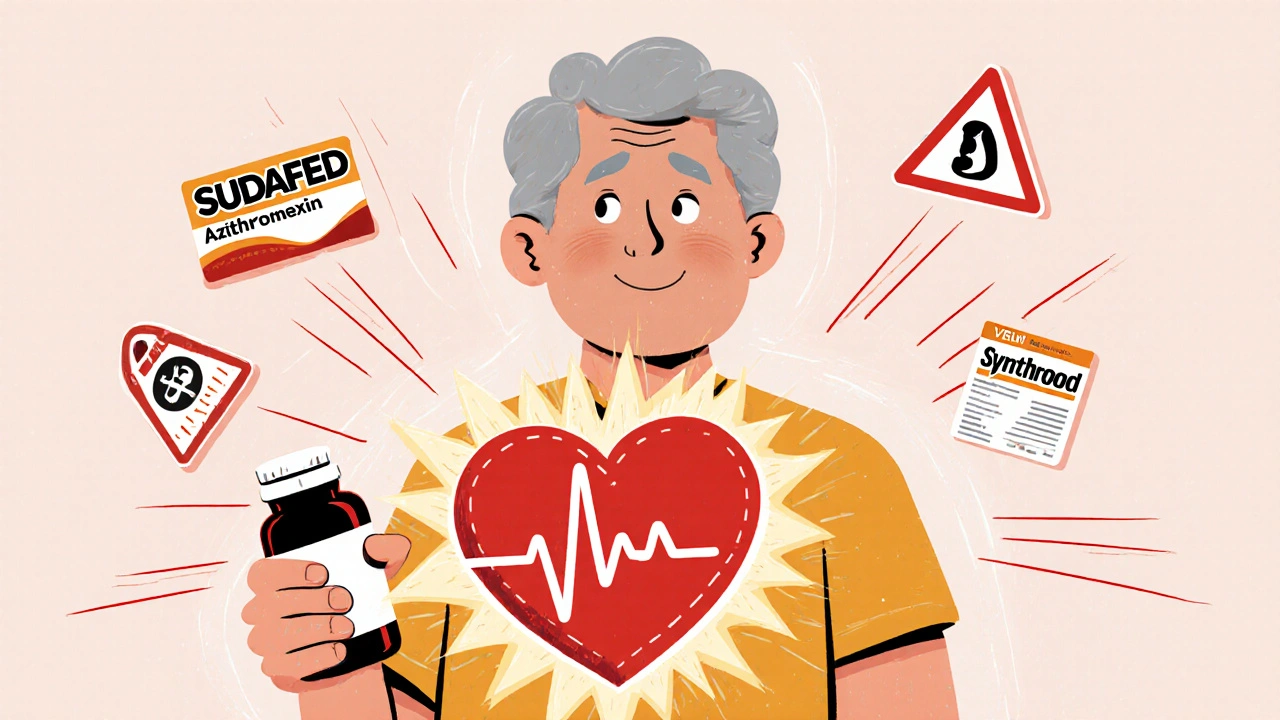When your heart suddenly races for no obvious reason—like after taking a new pill—it’s not just anxiety. This is drug-induced tachycardia, a fast heart rate caused by medications that interfere with the heart’s electrical system. Also known as medication-related arrhythmia, it can happen with prescription drugs, over-the-counter meds, or even supplements. It’s not rare, and it’s not always harmless. Many people don’t realize their racing heart could be tied to something they’re taking daily.
Drugs that mess with your heart rhythm often do it by affecting electrolytes, blocking certain channels, or overstimulating the nervous system. QT prolongation, a delay in the heart’s electrical recovery phase, is one of the most dangerous mechanisms behind this problem. It’s linked to antibiotics like moxifloxacin, antipsychotics like Abilify, and even some antidepressants. Then there are stimulants—think ADHD meds, decongestants, or weight-loss pills—that crank up adrenaline and push your heart rate through the roof. Even some asthma inhalers or thyroid meds can do it if the dose is too high.
It’s not just about the drug itself. Your age, kidney or liver function, and other meds you’re taking can turn a safe dose into a risky one. Someone on multiple drugs might not realize their rapid heartbeat comes from the interaction between their blood pressure pill and their allergy medicine. That’s why monitoring matters. If you’ve started a new medication and your heart suddenly feels like it’s pounding in your chest, don’t ignore it. Write down when it happens, what you took, and how long it lasts. Bring that to your doctor. Most cases are fixable—either by switching drugs, lowering the dose, or adding a monitor.
The posts below cover real cases where medications caused heart rhythm issues—and what alternatives actually work. You’ll find comparisons of antipsychotics like Abilify and Seroquel, antiarrhythmics like amiodarone, and even how common painkillers or antibiotics can trigger problems. Some articles dig into how drug levels are tested, how to spot early signs of toxicity, and what to ask your pharmacist before filling a new script. This isn’t theory. It’s what people actually experience—and what doctors use to make safer choices.

Many medications can cause palpitations and rapid heartbeat, from antibiotics to decongestants. Learn which drugs are risky, how doctors evaluate the problem, and what steps you can take to stay safe.
read more